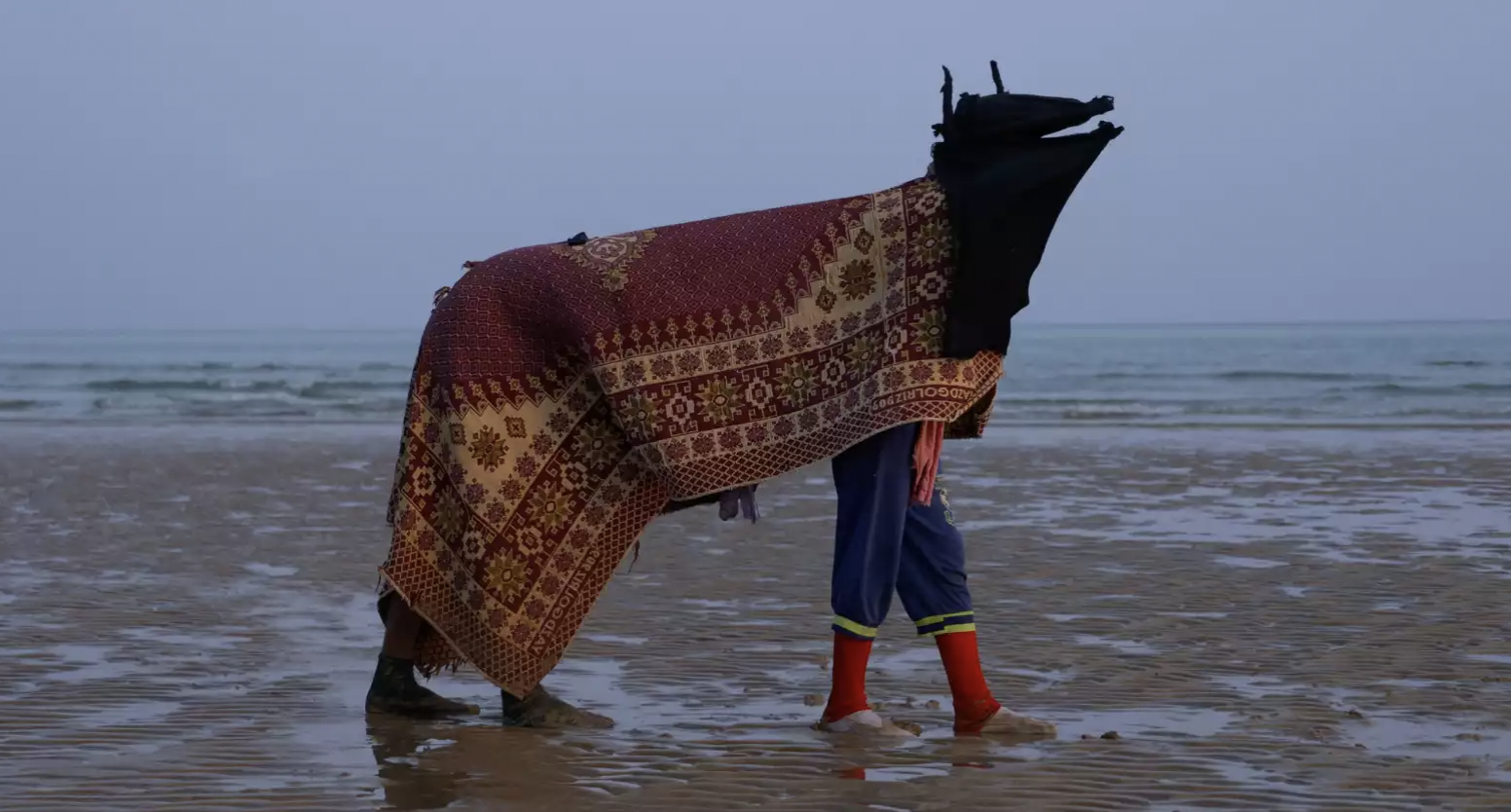Alia Farid

At the Time of the Ebb, 2019
Alia Farid is filmmaker and sculptor whose practice centers lesser-known histories that are deliberately erased. Her work explores the ecological devastation of southern Iraq and the forced displacement of its people, the under-told histories of Arab and South Asian migration to Latin America and the Caribbean, and the intersectional Palestinian–Puerto Rican solidarity movement. Farid holds a Bachelor of Fine Arts from La Escuela de Artes Plásticas de Puerto Rico (Viejo San Juan), a Master of Science in Visual Studies from the Visual Arts Program (now Art, Culture & Technology) at Massachusetts Institute of Technology, and a Master of Arts in Museum Studies and Critical Theory from the Independent Studies Programme or Programa d’Estudis Independents at MACBA (Barcelona).
Farid has had solo exhibitions at Chisenhale Gallery (London, 2023), The Power Plant Contemporary Art Gallery (Toronto, 2023), Rivers Institute (New Orleans, 2023), Kunsthalle Basel (2022), the Contemporary Art Museum St. Louis (2022), Kunstinstituut Melly (Rotterdam, 2020) and Portikus (Frankfurt, 2019). She has also been included in the Whitney Biennial 2022, 32nd Bienal de São Paulo, the 12th Gwangju Biennale, Sharjah Biennial 14, the 2nd Lahore Biennale, “Theater of Operations: The Gulf Wars 1991-2001” at MoMA PS1, the Yokohama Triennale 2020, and Forecast Form at Museum of Contemporary Art (MCA) in Chicago. She has also curated the Kuwait Pavilion at the 14th International Architecture Exhibition (2015). Farid received The Lise Wilhelmsen Art Award in 2023 and is currently the David and Roberta Logie Fellow at the Harvard Radcliffe Institute (2023-2024). Her research at Radcliffe is a continuation of Chibayish (included in this exhibition), which will culminate in an artist’s book (forthcoming, Siglio Press) responding to the images and texts produced by photographers who frame the southern marshes of Iraq as a primordial space.